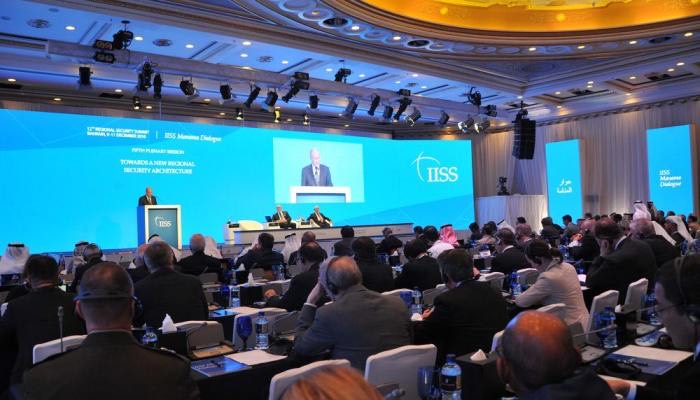The IISS Manama Dialogue Conference is held in Bahrain from 22 to 24 November. The conference will be discussing “security and stability issues in the region and current problems and challenges”.
Despite the apparent stability in Bahrain as a result of the tight security grip and the suppression of freedom of expression, the reality shows deep political, security, economic and human rights challenges remain.
The authorities in Bahrain have worked to free the country from any opposition and marginalise and shut down most civil society organisations and political associations. In 2006, the Bahrain Center for Human Rights (BCHR) was dissolved. In 2012, the Islamic Action Society was also closed down. In 2016, al-Wefaq, the largest opposition political party, was dissolved, its funds liquidated and a life imprisonment was imposed on its Secretary General Sheikh Ali Salman. In 2017, another opposition political association, the National Democratic Action Society (Waad), was closed down.
The United Nations has a series of laws, conventions, treaties and standards to promote political, economic and social development, international peace and security. The implementation of the treaties and charters created by the United Nations are foundation and norm of international law. These include:
1) International Convention on the Elimination of All Forms of Racial Discrimination (1965): However, racial discrimination is carried out by the state against the Shia community and against all citizens who participated in mass protests in 2011 calling for political reform. Most of the largest Shia religious establishment in Bahrain, the Ulema Council, has been disbanded and senior ayatollahs such as Ayatollah Mohammad Sanad and Ayatollah Sheikh Hussein Najati have been exiled from the country. The citizenship was stripped of the main religious authority for Shia citizens in the country, Ayatollah Sheikh Isa Qasim.
2) International Covenant on Civil and Political Rights (1966): Bahrain contravenes the articles of the Covenant and adopts repressive methods to punish human rights activists and journalists, most notably freedom of expression and belief, the right of association, arbitrary detention and torture.
3) Convention on the Elimination of All Forms of Discrimination Against Women (1979). The Convention on the Elimination of All Forms of Discrimination against Women, which states that “State Parties shall grant women equal rights with men with respect to the nationality of their children” in contravention of the Bahraini Nationality Law.
4) Convention on the Rights of the Child (1989): Children in Bahrain do not enjoy the benefits of social security, which provides adequate rights to healthy health development. Children are not issued passports if their parents are in prison or abroad, as the Ministry of Interior requires citizenship, passports and residency documents for the father or legal representative for newborns. Bahrain’s prisons contain hundreds of children detained on political charges, including terrorism-related charges. and torture is used to extract confessions.
5) Convention against Torture and Other Cruel, Inhuman or Degrading Treatment or Punishment: Torture of detainees is widespread and systematic in Bahrain in detention, interrogation centers and prisons in the absence of international monitoring committees and the authorities continue to disallow approval of rapporteurs’ requests. Forms of torture used include the sexual assault and harassment of men, women and children.
SALAM for Democracy and Human Rights remind participants at the Manama Dialogue Conference that the rule of law, established by an independent and representative legislative authority and in conformity with international human rights conventions and treaties, is essential for lasting peace and effective protection of human rights, economic progress and sustainable development.
SALAM for Democracy and Human Rights (SALAM DHR) calls on all participants in the Manama Dialogue Conference to urge the authorities in Bahrain, while discussing the issues of conflict management, stabilisation, international law and security in the Middle East, to address the need to respect international conventions and public freedoms and human rights, including lifting the ban imposed on civil society institutions and political associations and the need to create a positive climate with the opposition by releasing prisoners of conscience and engage in dialogue to reach a national consensus to dissolve the crises in Bahrain.


 العربية
العربية Français
Français Deutsch
Deutsch